Well, It's that time of year. A time to look back at last year and more importantly, to look ahead to a new year. Are you going to be the great trader in 2019 that you were meant to be? Or, are you going to fall into your old habits? Keep these 19 Trading Resolutions, and I can all but guarantee you a prosperous 2019.
1. I will only take trades when conditions are conducive to my methodology.
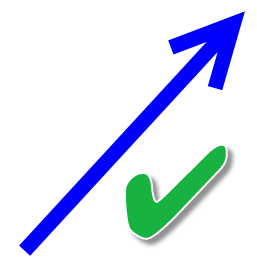
For a trend follower that means that the market is significantly higher than it was (or lower for shorts). If the market has been trading sideways for months, then I will only take trades that I truly feel can somehow excel in spite of lackluster conditions.
2. I will carefully plan all trades ahead of time and then work diligently to follow that plan.

Unknown or changing information creates stress (Montier). You must plan while things are static. You won’t know how things will shake out once the market opens, but at least you’ll have a plan to deal with it. You can’t plan during the heat of battle. By then, it’s too late.
In my Trading Service, I lay out a very detailed plan nightly: where to enter, where to place the protective stop, and where to take initial profits. However, in spite of all this planning, I still get a plethora of emails. XYZ triggered yesterday, and now it’s up 2 bucks. I didn’t take the trade. Is it too late? Should I get in now? I know ABC hit the stop last week but I’m still in. Do you think it might come back?..and so on and so forth... TRUE, some discretion is required and it seems like more is needed in more recent times (especially in 2018!). That's not what I'm talking about though. I'm referring to a complete abandonment of the plan just exercising a little discretion: minor tweaks in an attempt to improve performance.
3. I will only take trades that trigger an entry.
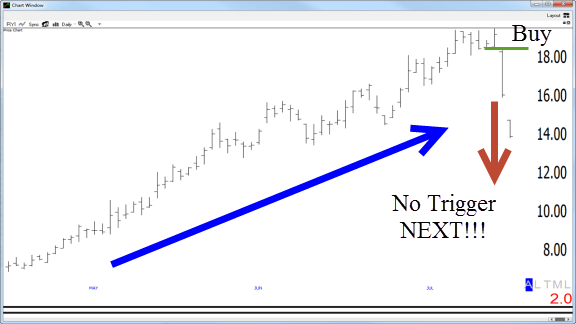
It often amazes me how many losing trades can be completely avoided simply by waiting for an entry. As I’ve said ad nauseam, I often get emails from clients complaining about some turd that I recommended. The conversation often goes something like this:
Them: Dave, I’m down 50% in XYZ, what should I do now?
Me: XYZ? That stock’s been headed lower for months. Why did you buy?
Them: Because YOU recommended it.
Me: I’d never recommend a potential long that’s been headed lower for months.
Them: Yes you did!
Me: When?
Them: 6-months ago.
I check the charts and lo and behold it was a beautiful setup back then. However, it not only didn’t trigger but the pullback turned into a bona fide downtrend.
To win, you must lose as little as possible. Druckenmiller once said that “The way to build long-term returns is through preservation of capital and home runs.” Amen!, my brother from another mother! The preservation of capital comes from picking the best and leaving the rest and then, making sure that they trigger in the first place. This brings us to our next point.

4. I will pick the best and leave the rest.
When asked about my holding period, my answer is always “10-years, hopefully much longer.” When I pick a setup, I truly believe that the stock has big potential. Don’t deal in mediocrity. When you do think you’ve found something great, just make sure it truly is intuition and not “into wishing” (Market Wizards).
5. I will be Patient.

Tom Petty got it right. The waiting is the hardest part. Sometimes it’s hard just to sit there when the market is grinding sideways, but that’s often the thing to do, nothing. Yes, do your homework in spite of the conditions but make darn sure you have the mother-of-all setups when you don't have a tailwind.
6. I will do my homework, leaving no stone unturned.
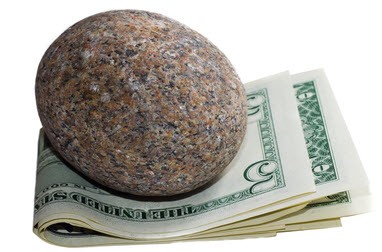
I will look at a plethora of stocks daily (for me, it’s at least 2,000). I will study all the sectors, major ETFs, bonds, indices, and commodities. The harder you work, the more likely you will have a feel for the markets. And, "the harder you work, the luckier you get."
7. I will only trade the charts and ignore all other extraneous information.
I’m obviously a big fan of technical analysis. The reason is that the only way to make money trading is to catch a trend. The chart must move higher (or lower for shorts). The charts do not lie. Unless you’re Bubba (keep reading), what is, is.
As I preach, the news is noise. Yes, news affects markets but you can’t factor it into your trading. First, you don’t know what’s going to happen. Any of you got it wrong on Brexit or Hillary? And, if even if you were able to predict news correctly, you’d often find that the reaction was often muted or quite often the opposite of what’s logical.

Read my lips: I ignore ALL news. I know I’ve said this repeatedly, but I’d be willing to bet in the not-so-distant future I’ll get an email saying “Hey Big Dave, XYZ has earnings next week. Should I bail?” Nope. Follow the plan.
8. I will place a protective stop after a trade triggers.

I will place a stop because no one knows exactly what a market will do next. That goes for you, me, and the guy who screams on TV. Some day, I'm going to write a column without saying that. Today is not that day!
9. I will take partial profits when offered.
Everything’s a probability at best. And, a market is much more likely to only make a short-term move than begin/resume a longer-term trend. Therefore, you can’t look a gift horse in the mouth. You must take partial profits (half) when the swing trade target is achieved. If it does turn into a major trend, then you’re still in. And, if it doesn’t you scratch out (barring overnight gaps) for what I have dubbed the “better-than-a-poke-in-the-eye” trade.

10. I will not take any unnecessary action thereby micromanaging myself out of trades.
Micromanagement comes in 3 forms.
First, you might exit trades because you think that they have gone “far enough.” The problem with that is that if you quit at 25%, you’ll never make 50%, and if you quit at 50%, you’ll never make 100%, and if you quit at 100%, you’ll never make 1,000%.... Again, remember that successful trading is “preservation of capital and home runs.”
The second form of micromanagement is attempting to mitigate losses by exiting at the first signs of adversity or if the stop is neared but not officially hit. Yes, I’ve been there and got the T-shirt. Way back when the earth was still cooling, I shorted Dell around 50. I then got my father in the trade with me. I planned to have a stop at 55 and told myself that was the plan. Instead of focusing on my day job, I called the automated broker system repeatedly for quotes. When the stock hit 54 7/8 (stocks traded in 1/8ths back then) I figured it was close enough for government work. I pulled the plug and notified my father to do the same. That turned out to be the high tick. Dell then imploded to single digits. For many years later, my dad would occasionally say, “You remember that Dell trade?” Arrrrg!

The third form of micromanagement is exiting a trade because the stock is just treading water. A reoccurring theme for my Week In Charts is the Dead Money Report. I often show stocks that drifted for days, weeks, and sometimes months before taking off. But wait, as a trend follower, shouldn’t they be trending? Yes, they should be trending BEFORE you get in but remember that the market often doesn’t move on your time frame. As I preach, trading, done properly, can often be quite boring. This leads us to our next point.
11. I will seek excitement and entertainment outside of the market.
If you’re looking for action, the market is a very expensive place to look. As I preach, have an affair instead. That way, you only lose half of your money. All kidding aside, find something to do other than staring at a screen. I keep myself crazy busy. I’m often here before the sun comes up and long after it goes down. That doesn’t mean that I'm sitting here staring at a screen. I'm writing/working on content, answering emails, doing research/analysis, giving webinars, or planning the next leg of my Big Dave's Trend Following Moron World Tour. The more that you stare at a screen, the more likely that you’re going to put yourself into a “state of regret.” And, further, the more likely you will be to take unnecessary action. “Be as close to the market as you need to be but no closer.”
As I preach, busy traders make good traders. A client of mine has had his struggles with trading but recently told me that his trading has “gotten a lot better.” Did he discover some Holy Grail? Nope. One of his doctors quit, and he had to pick up her shift at the hospital. He no longer has time to deal with mediocrity in the markets. He has no choice but to only take the best and leave the rest. He also doesn't time to micromanage himself out of perfectly good trades.
12. I will accept what the Market is willing to give.
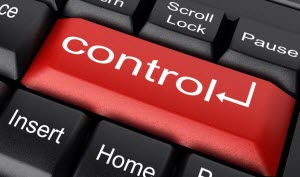
I have the privilege of working with great doctors, engineers, entrepreneurs, and even a well-known dog trainer. These people are very successful, and their intelligence humbles me. I might not know you (yet?), but I’m willing to bet that you’re smart. How do I know? Trading attracts some of the brightest minds out there. Unfortunately, the same people who are attracted to trading often make the worst traders. One reason is control. You didn’t become successful in life without a high degree of control.
One more point here: Remember, all trades will eventually end badly. You flat out lose, you make a little then get stopped, or you make a lot but then give up a sizable portion of the profits in the end. Knowing ahead of time that there’s going to be some pain in ANY trade makes it a lot easier when, not if, it occurs.
13. I will do an honest post-mortem on every trade.

Years ago, one of my big epiphanies was finding myself saying “what in the hell was I thinking!?!” when looking at trades of the past. The stock (or other markets) was choppy, and there was no obvious discernible pattern. Regardless of the outcome, go back to day one and ask yourself, was there an obvious or emerging trend? Was there overhead supply? And, all of the other things that I said to look for/avoid in the 14-hours of my Stock Selection Course. If you can't afford the course, make sure you at least watch the 1-hour video on that page. Many of the things to avoid are outlined there.
Unfortunately, in trading you have none. You’re either going to win, lose, or draw on a trade. You can’t control the outcome but you can control yourself. Pick the best, leave the rest, and then let the chips fall where they may. The so-called serenity prayer comes to mind.
14. I will reward myself for following the proper process regardless of the outcome.


“Outcomes are noisy.” (O'dean) You can do everything exactly right and still lose money. Conversely, you can wing it and often do quite well. Warning, dead horse beating follows: The market is often a bad teacher. Yes, you might have a string of success shooting from the hip but longer-term the only way that you’ll be successful is to follow the process.
15. I will hold myself accountable.
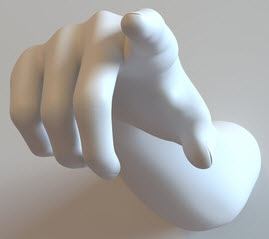
I have a very smart client that has an excellent grasp of the trading process. His stock selection is very good and he “gets” my swing-to-intermediate-term hybrid approach to money management. He has periods of great success but then begins to abandon the plan through a host of bad behaviors. You name ‘em: taking less-than-ideal setups, trading “big picture ideas,” etc… I asked him, would you be willing to get your wife involved with your trading to help you from deviating from the plan? "Oh no," he replied, “that would end our marriage.”
Okay, maybe your spouse isn’t the best person to get involved with your trading. Do find someone that’s willing to give you the tough love that you might need. I’ll be happy to help here (if you're following my trading service). And, if you don’t want to get anyone else involved, just make sure that you at least hold yourself accountable. Because so many are “looking over my shoulder,” my accountability is that I must make sure (again) that I leave no stone unturned when it comes to looking for opportunities. This is especially true since many of my clients are good stock pickers. Every night I stress that a client might find something that I didn't so I make sure that doesn't happen. Once opportunities are found, I know that I must stick to the plan. Yes, I’m human and tempted to micromanage and a host of other bad behaviors, but I know that I must stay true to form. As I’ve written before, my educational business makes me a better trader because I’m forced to practice what I preach.
16. I Will Embrace My Emotions.
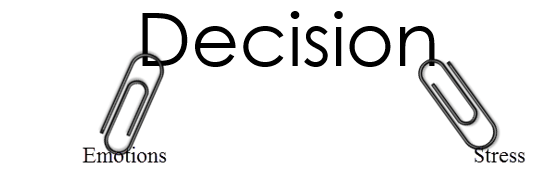
I purposely used the word "embrace" and not "eliminate" because it has been proven that you can’t function properly as a human being without emotions. (Damasio,Shull) Every decision, even what you are going to have for lunch, comes with some emotions and stress. To wrap your head around this, become cognizant of your emotions in both life and trading. Also, reduce the number of unnecessary decisions that you make by simply following the plan. Remember, less decisions, less stress.
17. I Will Keep A Journal of my Actions AND MY Feelings

By Source, Fair use, https://en.wikipedia.org/w/index.php?curid=23609342
Obviously, it's important to keep track of your trades (although nowadays brokerages will do a great job of that for you). It's also vitally important that you keep a journal of your emotions. Note: This is the journal that I resolve to use in 2019. Why are you taking this trade? Was it something carefully planned ahead of time or is it something that you're doing on the fly? How's your life going? As I preach, your life will spill over into your trading and your trading will spill over into your life. I can attest to this here. For reasons previously mentioned (I don't want to be a Debbie Downer), 2018 presented its challenges to me on a personal level. I'm glad to see it go! Even the positives last year-we began the process of building a new house-created unnecessary trading temptations. It seemed that nearly every time I'd walk over from my office to visit my wife, she'd inform me of a new expense-e.g. the latest: an extra $4k for beams (which was somehow left out of the original bid). When I returned to my office, I found myself trying to make something happen to cover the latest expense.

Source: Amazon.com
LR Thomas
"Don't expect trading to fill a hole in your life that's missing"

In December, Charles Kirk had me as his guest of honor for his retreat in St. Lucia. One thing that came up was what to do with temptations that are outside of your normal methodology. For instance, day trading if you're normally a position trader, option trading if that's not your normal forte, etc. As I've said before, if you do feel such temptations, put aside a small portion of your account an do just that. Some of you have pointed out that this could be a little dangerous--I hear ya: you can't get a little bit pregnant. However, I think if you're going to do it anyway, then do it with a small portion of your account and do what you normally do with the vast majority. Anyway, Charlie discussed the same thing but took it one step further. He pointed out that at the end of the year, you should carefully analyze what you did (in a separate account!) outside of the norm to see if it all was really worthwhile.
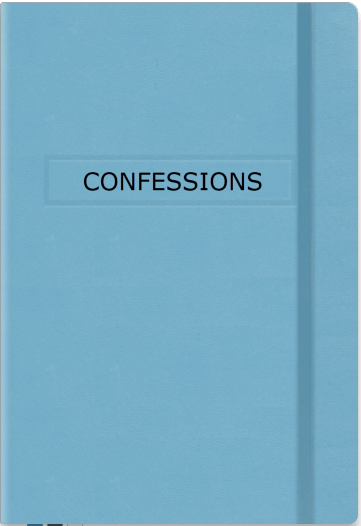
At the aforementioned retreat, one of the attendees, Casey, suggested something quite brilliant. Keep a "confession journal" on your desk. When you do find yourself caught in the Siren call of doing something that you shouldn't-and believe me, if you've been trading for a little while, you KNOW what that is!- document it! So, in addition to your Emotional Journal, keep a Confession Journal too.
18. I will "believe in what I see and not in what I believe."
I've been developing a massive course in trading psychology on and off for years. As part of this project, I took a personality test. I scored a 0 in agreeableness. That explains a lot. Now I know why I get so frustrated when the market doesn't do what I think it should. This was an epiphany for me.

It's hard to work hard and not get the expected outcome. That's often trading. As I preach, unless you're Bill Clinton, what is, IS. There might not be any good reason why a market is headed higher or lower, but it is.
19. I will print off this list and refer to it often in ’19 ;)
Seriously, as mentioned in the (free!) Getting Started Course, when you write something down and refer to it often, you're 10x more likely to do it! As an example, my goal was to shed 20 lbs. in 2018. Earlier in the year, when I kept the notebook with my resolutions on my desk, I very slowly but steadily moved in the right direction. However, once it got buried, I started to move in the opposite direction. Along these lines, this is why I have everyone in my Member's area set their trading goals. Then, each time they log in, they instantly know whether they are moving toward or away from their goals!
Below are my goals-feel free to borrow them! On more than one occasion, I have been tempted to do the wrong thing. When I get that urge, I force myself to read my goals out loud.


Source: IMDB.com
In addition to process goals like mine, goals can also be motivational in nature. Not to "last week at band camp" you, but last week in St. Lucia, I worked one-on-one with several traders. One of the "fixes" was for them to be cognizant of the trades outside of their normal trading. I told them to keep their longer-term goals in mind. For instance, some wanted to leave a legacy for their family. If they are trading outside of their wheelhouse or taking unnecessary trades, come back to the fact that that next trade is much bigger than you. That trade is taking away from their family's legacy. So, review your goals and ask yourself if the next trade will help you more toward or away from your goal.
May the trend be with you!

Dave Landry
P.S. Want to take your resolutions one step further? All of the above-money management, methodology, and trading psychology-is covered in much more detail under the Member's Area. Invest in yourself in 2019!
Leave Me A Comment! Well, that's what I think. Let me know what you think! I read ALL and publish nearly all-unless they're really turdy and I can't think of a decent comeback!


